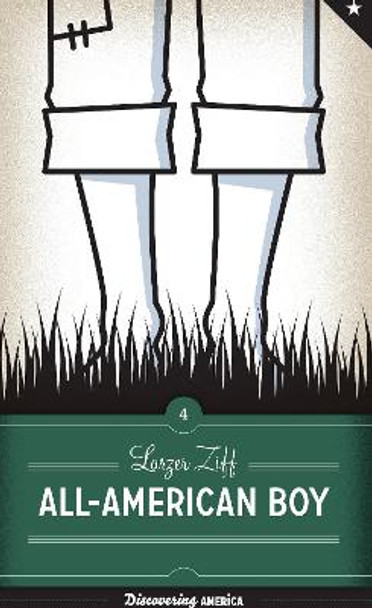Description
From his celebrated appearance, hatchet in hand, in Parson Mason Locke Weems's Life of Washington to Booth Tarkington's Penrod, the all-American boy was an iconic figure in American literature for well over a century. Sometimes he was a "good boy," whose dutiful behavior was intended as a model for real boys to emulate. Other times, he was a "bad boy," whose mischievous escapades could be excused either as youthful exuberance that foreshadowed adult industriousness or as deserved attacks on undemocratic pomp and pretension. But whether good or bad, the all-American boy was a product of the historical moment in which he made his appearance in print, and to trace his evolution over time is to take a fresh view of America's cultural history, which is precisely what Larzer Ziff accomplishes in All-American Boy.
Ziff looks at eight classic examples of the all-American boy-young Washington, Rollo, Tom Bailey, Tom Sawyer, Ragged Dick, Peck's "bad boy," Little Lord Fauntleroy, and Penrod-as well as two notable antitheses-Huckleberry Finn and Holden Caulfield. Setting each boy in a rich cultural context, Ziff reveals how the all-American boy represented a response to his times, ranging from the newly independent nation's need for models of democratic citizenship, to the tales of rags-to-riches beloved during a century of accelerating economic competition, to the recognition of adolescence as a distinct phase of life, which created a stage on which the white, middle-class "solid citizen" boy and the alienated youth both played their parts.
Offering an intriguing new approach to American cultural history through one of its enduring icons, Larzer Ziff traces the rise and flourishing of an ideal type once represented by such figures as George Washington and Tom Sawyer - a type immensely popular before antiheroes like Holden Caulfield captured our imagination
About the Author
Larzer Ziff is the author of a number of books on American literary culture, including Mark Twain; Return Passages: Great American Travel Writing, 1780-1910; and The American 1890s: Life and Times of a Lost Generation, which won the Christian Gauss Award. He has also edited modern editions of major American authors, including Franklin, Hawthorne, Melville, Thoreau, Emerson, Crane, and Dreiser. He was the first person to have been appointed to the English faculty of Oxford University for the purpose of teaching American literature. Ziff is Caroline Donovan Professor Emeritus at Johns Hopkins University.
Reviews
"Larzer Ziff has a critical method, the one recommended by T. S. Eliot, that of being very intelligent... A sentence by Ziff is worth more than a paragraph by most other scholar-critics." Denis Donoghue, University Professor and Henry James Chair of English and American Letters at New York University "As a whole, Ziff's book offers important cultural contexts for these famous American boys...This study will be of particular interest to those interested in childhood studies, but it also offers a distinct view on US cultural history for all Americanists through its study of the American boy as he morphs from sage truth-teller to angry young man." - Choice
Book Information
ISBN 9780292738928
Author Larzer Ziff
Format Hardback
Page Count 154
Imprint University of Texas Press
Publisher University of Texas Press
Weight(grams) 399g
Dimensions(mm) 229mm * 140mm * 33mm





